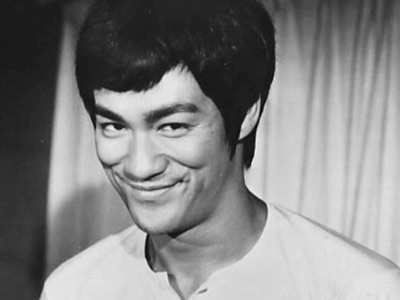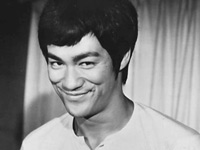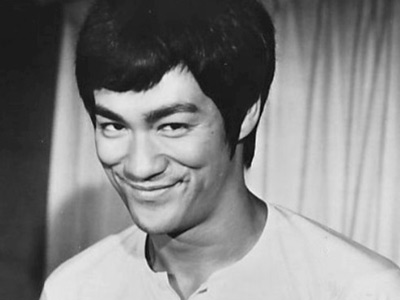Bruce Lee (1940-1973)

Jeet Kune Do
Jeet Kune Do originated in 1967. After filming one season of The Green Hornet, Lee found himself out of work and opened The Jun Fan Institute of Gung Fu. The controversial match with Wong Jack Man influenced Lee's philosophy about martial arts. Lee concluded that the fight had lasted too long and that he had failed to live up to his potential using his Wing Chun techniques. He took the view that traditional martial arts techniques were too rigid and formalistic to be practical in scenarios of chaotic street fighting. Lee decided to develop a system with an emphasis on "practicality, flexibility, speed, and efficiency". He started to use different methods of training such as weight training for strength, running for endurance, stretching for flexibility, and many others which he constantly adapted, including fencing and basic boxing techniques.
Lee emphasised what he called "the style of no style". This consisted of getting rid of the formalised approach which Lee claimed was indicative of traditional styles. Lee felt the system he now called Jun Fan Gung Fu was even too restrictive, and eventually evolved into a philosophy and martial art he would come to call Jeet Kune Do or the Way of the Intercepting Fist. It is a term he would later regret, because Jeet Kune Do implied specific parameters that styles connote; whereas the idea of his martial art was to exist outside of parameters and limitations.
HISTORY

RESOURCES
This article uses material from the Wikipedia article "Bruce Lee (1940-1973)", which is released under the Creative Commons Attribution-Share-Alike License 3.0.
© Stories Preschool. All Rights Reserved.









